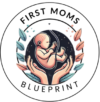The alarm clock had been replaced by infant cries. The business suits swaped for milk-stained loungewear. The confident executive voice now wavering with uncertainty. For Wendy Brown, 39, the contrast between her former life and her new reality couldn’t be more stark.
“Last year, I was leading quarterly presentations for a room full of executives,” Wendy whispers as she gently rocks her eight-week-old daughter, Mila. “Now I can’t figure out why she won’t sleep longer than 45 minutes at a time.”
Wendy’s story isn’t unique. After fifteen years climbing the corporate ladder, she now finds herself questioning everything. Did Mila get enough milk during that last feeding? Is it too soon to take her to the park? What exactly is a “wake window” and why does it matter so much?
“The strangest part is how my confidence just… evaporated,” Wendy admits. “I used to thrive under pressure. But when Mila cries and nothing I do seems to help, I feel utterly defeated.” The transformation is particularly noticeable when Wendy’s mother visits. “Somehow Mila knows,” Wendy says with a mixture of amusement and frustration. “My mom walks in, holds her, and Mila instantly settles. Meanwhile, I’ve been bouncing and shushing for hours with no success.”
Navigating the New Normal: Finding Your Footing as a Mother
If Wendy’s experience resonates with you, take heart. The identity shift of motherhood is profound, but you can find your way through it. Here are some strategies for reclaiming your sense of self while embracing your new role:
1. Acknowledge the Learning Curve
Even if you’ve excelled at work, motherhood is a completely different domain. Give yourself permission to be a beginner. No one starts as an expert mother. Each night, acknowledge one thing you learned about your baby or about being a mother. This practice helps frame challenges as growth opportunities rather than failures.
2. Separate Sleep Deprivation from Reality
When you’re exhausted, everything feels more overwhelming. Recognise when your feelings of inadequacy might be amplified by lack of sleep. When negative thoughts creep in, ask yourself: “Would this feel as devastating if I’d had eight hours of sleep?” Often, the answer is no.
3. Build Your Village Intentionally
You’ve likely heard “it takes a village,” but in today’s world, villages don’t just happen—they’re built. Identify people who make you feel supported, not judged, and lean on them.
4. Transfer Your Existing Skills
That project management expertise or your talent for strategic thinking doesn’t disappear when you become a mother—it just needs translation to a new context. List three professional strengths and brainstorm how they might apply to motherhood. A detail-oriented accountant might excel at tracking feeding schedules and growth milestones.
5. Create Touchpoints with Your Pre-Mom Identity
Maintaining connection with parts of your identity that existed before motherhood helps provide balance and perspective. Schedule short activities that connected you to yourself before—whether that’s a 15-minute call with a work colleague, reading industry news, or practicing a hobby. Even brief connections matter.
6. Redefine Success
In professional settings, success often comes with clear metrics and feedback. Motherhood success is messier and more subjective. Establish your own definition of what “good enough” mothering looks like for you. Write down three things that would make you feel successful as a mother today—make them specific and achievable. “My baby is fed, clean, and I managed to shower” might be a perfectly reasonable definition of success for today.
7. Honor Your Instincts
In a world overflowing with parenting advice, trusting yourself becomes revolutionary. While it’s helpful to seek guidance, remember that you know your baby better than any expert. Before immediately searching online for answers, pause and ask: “What do I think my baby needs right now?” Practice listening to your intuition before consulting outside sources.
8. Find Your Motherhood Style
Just as you developed your own leadership or work style, you’ll develop your unique mothering approach. What works for your friend or your mother might not work for you—and that’s perfectly okay. Identify one parenting “rule” you’ve been forcing yourself to follow that doesn’t feel right. Experiment with an approach that aligns better with your values and personality.
A New Equation Emerges
Six months after our conversation, I check in with Wendy again. Mila is now eight months old, sitting up independently and babbling enthusiastically.
“I’m still not the same person I was before,” Wendy reflects. “But I’m not supposed to be. I’ve stopped trying to fit motherhood into my old identity. Instead, I’m building something new that incorporates both.”
“I still have days where nothing goes right and I question everything,” she admits. “But now I recognise those as just days, not definitions of who I am as a mother.”
Perhaps that’s the true transformation of motherhood—not the complete replacement of one identity with another, but the expansion of self to accommodate this new, profound relationship. One plus one equals something much more complex, and much more beautiful, than two.
What aspect of your identity shift has been most challenging since becoming a mother? Share your experience in the comments below.

